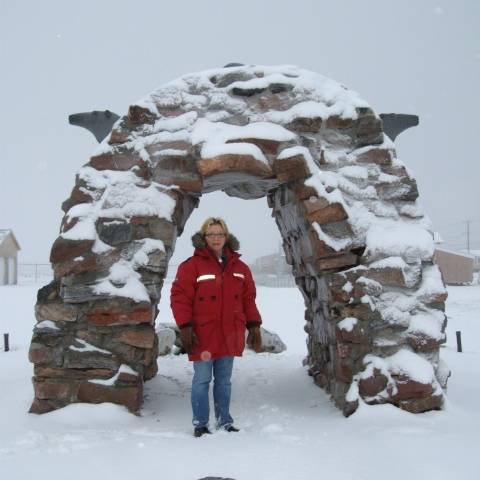Mobile RN finds late-career niche in northern communities
By Daniel Punch
The trip from Thunder Bay to the tiny northwestern Ontario community of Upsala typically takes about 90 minutes on the Trans-Canada Highway. The route passes through towns like Sunshine and Shabaqua Corners, and a vast expanse of boreal forest.
But for Donna Nutikka, that journey took nearly four decades. On the road from 19-year-old registered nursing assistant (RNA) in Thunder Bay to veteran RN at the Upsala nursing station, she stopped in three provinces, one territory, the U.S., and even a small fishing village in Nicaragua.
It all began in Port Arthur (now called Thunder Bay) in the 1950s. Young Nutikka watched her mother, an RNA, and her friend’s mother, an RN, take great pride in caring for others. “They were both very proud of their jobs, and good at (them),” she recalls.
Inspired, she earned her RNA certificate in 1972 and became the youngest health professional on the medical floor at Thunder Bay’s St. Joseph’s Hospital. Her early career also included stints at a local nursing home and psychiatric hospital, and in non-nursing roles bartending, driving a gravel truck, and at a youth hostel.
Looking to do more for her patients, she completed Confederation College’s RN program in 1988 while juggling two young kids and a part-time job. She spent most of the next 10 years happily working in obstetrics in acute care settings, until a change in government policy sent her career in a different direction.
It was the late 1990s, and deep cuts to health-care funding made nursing jobs scarce in Ontario. So she uprooted her life and moved to Calgary in 1998, where she switched to emergency nursing. A few years later, Nutikka was on the move again. Her kids had grown up and moved away, and she was looking for something new.
Armed with a diverse nursing background and a thirst for knowledge, she put everything she owned in storage and applied to travel nursing agencies. After a brief stop in San Juan del Sur, Nicaragua to learn Spanish, she began working as a travel nurse in Hayward, Calif. And Tacoma, Wash.
She continued travel nursing throughout the 2000s, venturing into remote communities in northern B.C. and Nunavut. There, she was often the only nurse on staff and the only health-care provider in town. It takes a special kind of nurse to handle the professional and personal challenges that entails, but Nutikka says it suit her just fine. “You have to be confident in who you are, be confident in your practice…and be okay with being alone,” she says.
Eventually, Nutikka met the love of her life and was looking to settle down once again. Her partner was also from Thunder Bay, so the couple moved back to Ontario in 2010 and bought a 160-acre farm in Sunshine. Shortly after moving, she was hired at the Upsala nursing station.
Just as she did in so many other small communities, she began to ingratiate herself to Upsala’s 190 residents by attending local events and making herself visible. “You show your face and show them you’re a part of their community,” she explains.
In the seven years since, she became an essential part of life in Upsala. In addition to her nursing duties, she helped the underserviced and aging community by co-ordinating care between different agencies to ensure people’s needs were met.
Though she officially retired this past spring, Nutikka still works part-time at the nursing station. Looking back, she cherishes the unique experiences she gained nursing in remote communities. Where else would she have cared for a man who cut himself while skinning a polar bear, or removed so many errant fish hooks?
She says nursing was the perfect career choice because it provided her the flexibility to move around and learn new things. It also didn’t hurt to have an adventurous spirit. “Jump in first, think later,” she says, laughing. “You’ve just got to do it. Tomorrow may never come.”
Daniel Punch is staff writer for RNAO, the professional association representing registered nurses, nurse practitioners, and nursing students in Ontario. This article was originally published in the July/August 2017 issue of Registered Nurse Journal, the bi-monthly publication of the Registered Nurses’ Association of Ontario (RNAO). . Since 1925, RNAO has advocated for healthy public policy, promoted excellence in nursing practice, increased nurses’ contribution to shaping the health-care system, and influenced decisions that affect nurses and the public they serve. For more information about RNAO, visit RNAO.ca or follow us on Facebook and Twitter.


